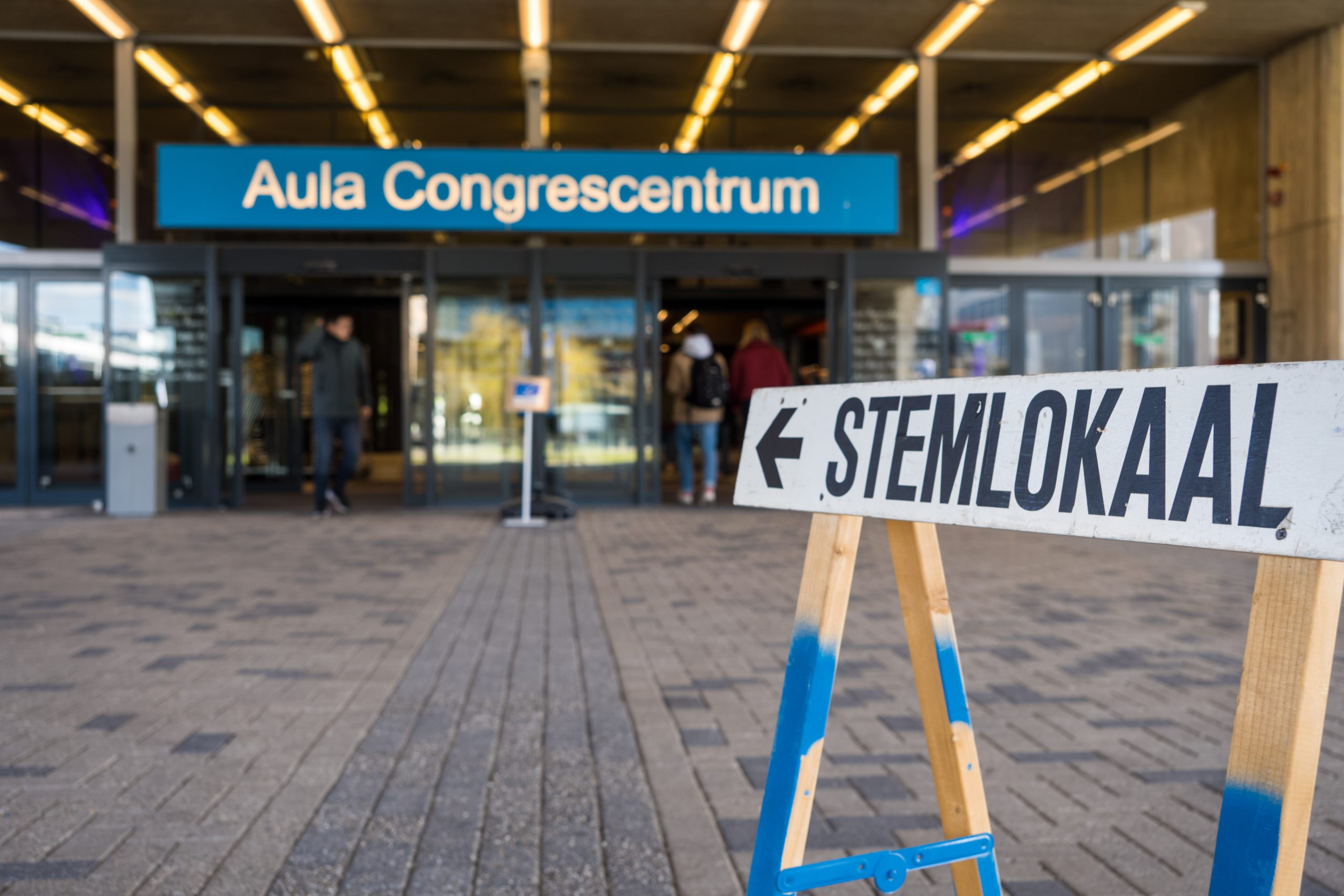GroenLinks won the most votes for the Provincial Council elections in Delft. The preliminary results show that newcomer Volt made the largest gains.
The Aula was one of 44 locations where you could vote in Delft. (Photo: Thijs van Reeuwijk)
The BoerBurgerBeweging (BBB) also got the most votes in the province of South Holland. The party won 13.7% of the votes, good for nine seats. The biggest loser was the Forum voor Democratie. Thierry Baudet’s party lost nine seats in these elections.
The proportion is slightly different in the Municipality of Delft. GroenLinks remains the biggest party there, followed by D66 and VVD, both of which lost four percentage points. The largest gains were made by the newcomer Volt (8.3%) and the BBB (7.8%).
The turnout in the Municipality of Delft was higher for the third time in a row. In 2015, 50.5% of the eligible voters voted, in 2019 this was 58.8% and in these elections this percentage had risen to 59.6%. Residents of Delft could vote in one of 44 polling stations.
Voting results on campus
If anyone wants to know the votes cast in each polling station, they need to go through the minutes of each polling station. Delta did this for the polling station on campus at the Aula. One thousand six hundred and seventy people cast their votes there. Of these, 1,661 voted for one candidate, three empty ballots were submitted, and six ballots were invalid. The reasons for these are not known. A ballot is declared invalid if the voter draws or writes something on the ballot which could identify the person or if someone ticks more than one name.
Any objections or complaints from voters are also included in the minutes. One voter complained about the accessibility of the Aula by car, another about how busy the polling station was and the number of students.
Water authority
The preliminary results also show that the BBB won the Delfland water authority elections. The definite results are due on Thursday 23 March. The elected candidates will then also be known.
Do you have a question or comment about this article?
m.vanderveldt@tudelft.nl


Comments are closed.